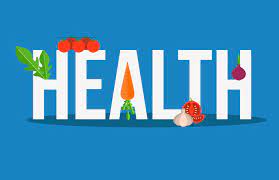Navigating Anxiety: A Comprehensive Guide to Natural Remedies vs Medical Treatment
Anxiety is a prevalent mental health condition that affects millions worldwide, regardless of age, gender, or background. It can stem from various factors such as chronic stress, genetics, trauma, or environmental factors and significantly impact a person's quality of life. As awareness around mental health grows, so do the treatment options available. This article explores the pros and cons of natural remedies and medical treatment, helping you make an informed choice based on your unique needs.
Understanding Anxiety: A Brief Overview Anxiety disorders come in many forms, including Generalized Anxiety Disorder (GAD), Social Anxiety Disorder, Panic Disorder, and specific phobias. Common symptoms include excessive worry, restlessness, fatigue, difficulty concentrating, irritability, muscle tension, and sleep disturbances. While occasional anxiety is a normal part of life, chronic anxiety that interferes with daily activities requires intervention.

Treatment is not one-size-fits-all. Factors like the severity of symptoms, personal preferences, access to healthcare, and underlying health conditions all play a role in determining the most suitable approach.
Natural Remedies for Anxiety Natural remedies are often the first choice for those looking to manage anxiety without medication. These remedies include lifestyle changes, herbal supplements, mindfulness practices, and more.

Lifestyle Changes Exercise, nutrition, and sleep are foundational to mental health. Regular physical activity releases endorphins and lowers cortisol levels, helping to alleviate stress. A diet rich in omega-3 fatty acids, magnesium, and complex carbohydrates can also support emotional well-being. Sleep, often disrupted by anxiety, is critical. Establishing a consistent sleep routine and creating a restful environment can significantly reduce symptoms.
Herbal Supplements Several herbs are believed to have calming effects, including:

- Valerian Root: Commonly used for sleep disorders, it may also help reduce anxiety.
- Passionflower: Linked to lower levels of anxiety and better sleep.
- Ashwagandha: An adaptogen known for its stress-relieving properties.
- Chamomile: Often consumed as a tea, it has mild sedative effects. It's essential to consult a healthcare provider before starting any herbal supplement, especially if you are taking other medications.
Mindfulness and Relaxation Techniques Mindfulness practices such as meditation
Exploring the intricate yet informative distinction between natural remedies and medical treatment in navigating anxiety: a clarion call for balanced approaches, empowered individuals.
In 'Navigating Anxiety: A Comprehensive Guide to Natural Remedies vs Medical Treatment', the book effectively balances insights into both holistic and conventional approaches, offering a well-rounded perspective on managing anxiety that meets varying needs with empathy.














